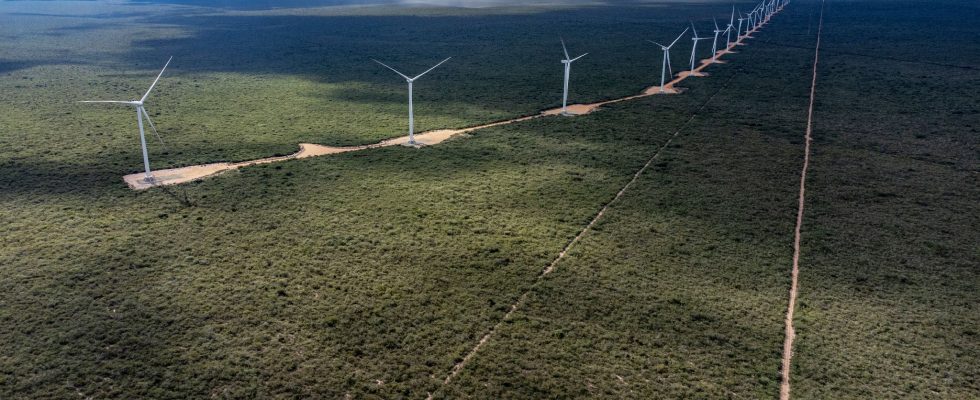On July 11, the World Meteorological Organization announced that the world had just experienced its hottest week on record. The daily record would have been reached on July 7 with an average temperature in the world of 17.24°C. These figures, associated with other spectacular events such as the melting of the pack ice, arouse understandable emotion. But emotion should not prevent taking a step back. The media and social networks are overflowing with two types of false, even counter-productive analyses. The first mistake is to say that “we are going in the wrong direction”. The second considers that “everything is screwed up”. Therefore, it is not surprising that the feeling of eco-anxiety, that is to say chronic anxiety about global warming, is developing, especially among young people.
The focus on rising temperatures is anxiety-provoking and tells us nothing about the efforts we are collectively making to mitigate and adapt to global warming. Global warming is the consequence of the accumulation of greenhouse gases (GHGs) in the atmosphere, an accumulation that began on a large scale in the 19th century, at a time when obviously nobody could care about this phenomenon. Focusing on temperatures means looking in the rear view mirror. To measure the current efforts of societies in the fight against global warming, greenhouse gas emissions are the best indicator. However, they are falling, and rather rapidly in the European Union, the United States and South America. Non-localized emissions – from international transport – also seem to have passed their peak. The United Kingdom, France and the United States are reducing not only their emissions, but also their carbon footprint, ie the emissions linked to their production corrected for foreign trade. In contrast, emissions continue to rise in China, India and Africa.
The direction taken is the right one
In a large part of the world, emissions are therefore under control, even if their decline is too slow compared to the objectives of carbon neutrality by 2050. But the direction taken is the right one. It remains to be seen whether we can expect a drop in emissions in the countries where they are still increasing, first and foremost China, and whether, in the others, the decline can accelerate. The answer to both questions is yes. To become aware of this, we must look at the technological and financial means that are used to decarbonize the economy. The “advanced indicators” of GHG emissions are very well oriented.
First good news, according to the Global Energy Monitor, 95% of coal-fired power plants in operation in the world, or just over 1,600, have a scheduled closure date. Only about thirty countries are still planning to open such power stations. Excluding China, coal-fired power generation capacity is already shrinking.
Solar and wind cheaper than coal
Second good news: the decarbonization policy is very proactive. China’s investments in renewable energies (sun and wind) are colossal. Each year, this country adds the equivalent of the total production capacity of a state like Australia. China’s GHG emissions continue to rise, but no doubt the curve will reverse.
Third good news: the increase in carbon-free electricity production capacity and technical progress are making it possible to reduce costs and prices. According to Hannah Ritchie, a researcher at Our World In Data, the price of solar energy has fallen by 90% over the past decade, and the price of wind energy by 70%. These prices are now lower than those of coal and gas. The price of batteries has fallen by 97% in thirty years, which is rapidly bringing down the price of electric vehicles. Physicist Robert Rohde, an environmental specialist, assures us that no energy production capacity has ever been deployed in the history of humanity as quickly as solar energy. Wind power comes just behind.
Stop believing those who claim that nothing is being done to fight global warming and that governments are not taking the problem seriously. The world may even succeed in meeting a historic, existential challenge. It’s exciting!
* Nicolas Bouzou is an economist and essayist
